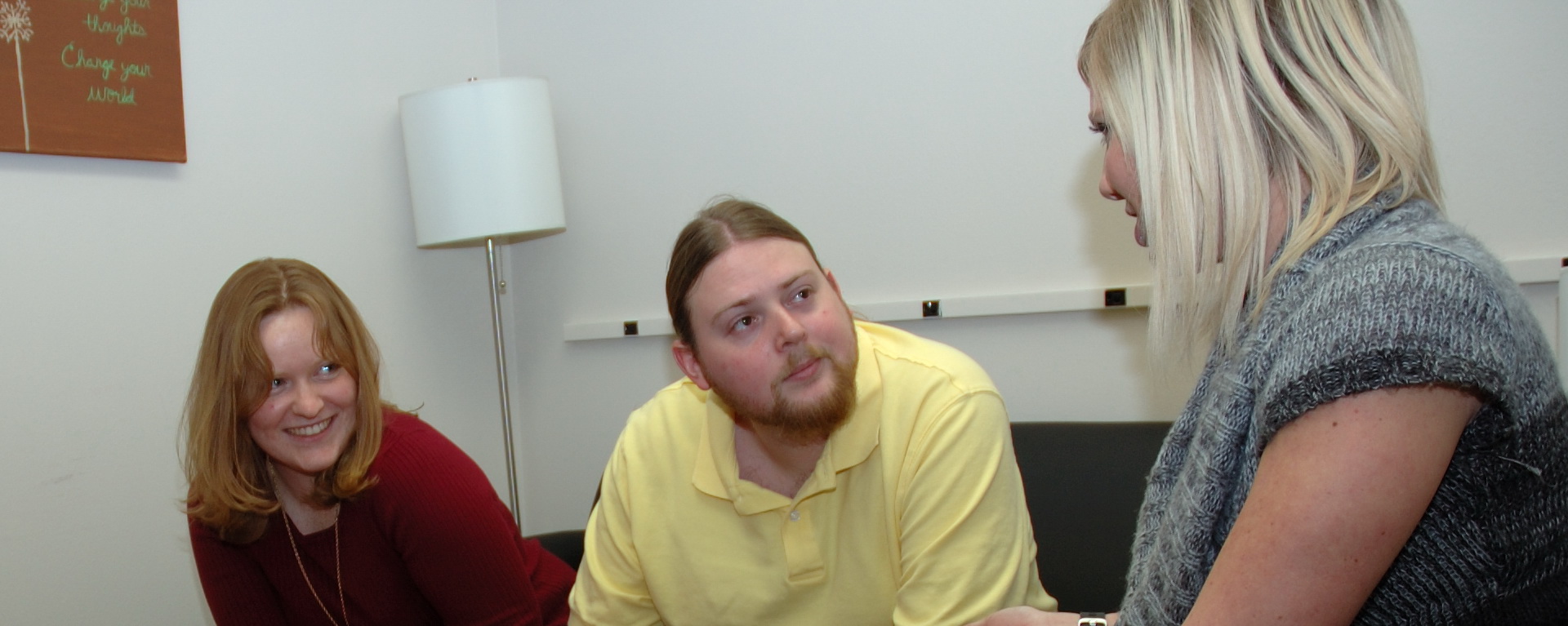
What You Can Expect
- Cognitive and interpersonal-process therapies to address depressive disorders
- Active strategies to combat depression
- Identification of issues that negatively impact relationships, and steps to alter patterns that weaken your social network
- Usually a one-hour, $10 session each week, with flexibility for different scheduling requests
- Caring graduate-student therapists under the direct supervision of licensed doctoral-level Washburn faculty
Information on disorders commonly treated at Washburn Psychological Services Clinic are below:
People with major depressive disorder experience feelings of sadness or difficulty enjoying things in their life for at least two weeks (and often much longer).
Other symptoms may include:
- Change in appetite (possibly including weight loss or weight gain)
- Changes in sleep (disrupted/too little sleep or sleeping too much)
- Feeling tired all of the time
- Feeling worthless or guilty
- Concentration problems
- Decreased interest in hobbies, socializing or sex
- Crying or tearfulness
- Thoughts or actions relating to hurting or killing oneself
Individuals who are depressed may feel like they have to push themselves to do what they need to do to carry on with their lives. They may also withdraw and give up important activities (e.g., call in sick to work, stop spending time with friends). Overall, individuals who are clinically depressed experience either significant internal or personal distress and/or find that their symptoms interfere with their ability to function at home, at work or in other parts of their life.
What is the impact of major depressive disorder?
- Low life satisfaction
- Interpersonal problems with family and friends
- Impaired work performance (or inability to work)
How common is major depressive disorder?
A recent Gallup Poll (2023) reported that 29% of adults in the U.S. have experienced depression at some point in their life, which is a 50% increase from a rate of 21% just four years ago in 2019. Young adults are reporting a post-COVID spike in depression, with over 34% of those aged 18 to 44 acknowledging notable impairment in functioning, specifically identifying social isolation and lack of satisfaction in social relationships as primary concerns. Rates of depression among persons who identify as Hispanic/Latinx and Black currently exceed 30%, surpassing whites for the first time dating back several decades.
What is Persistent Depressive Disorder?
Persistent Depressive Disorder is similar to major depression in that it involves feelings of sadness and depression. However, these feelings of sadness and depression are typically not as intense as in major depressive disorder but are more long-lasting. People with Persistent Depressive Disorder report feeling down or blue more days than not for two years or more. In fact, it is possible for someone to suffer from Persistent Depressive Disorder for 20 or 30 years or more. Besides chronic, low-level feelings of sadness, other symptoms of Persistent Depressive Disorder may include: changes in appetite, sleep problems, fatigue, low self-esteem, poor concentration, and feelings of hopelessness or pessimism about the future.
What is the impact of Persistent Depressive Disorder?
- Elevated risk for episodes of major depression (as many as 79% have an episode of major depressive disorder occur during the course of their Persistent Depressive Disorder)
- Elevated risk of suicidal behavior
- Interpersonal problems with family and friends
- Impaired work performance
How common is Persistent Depressive Disorder?
In any given year, approximately 1.6% of the population experiences Persistent Depressive Disorder (best estimate by the surgeon general based on the Epidemiological Catchment Area study and the National Comorbidity Survey).
GET IN TOUCH WITH Psychology Clinic
Psychology Clinic
Psychology Building, Room 104
1700 SW College Ave.
Topeka, KS 66621
Phone
785.670.1750

